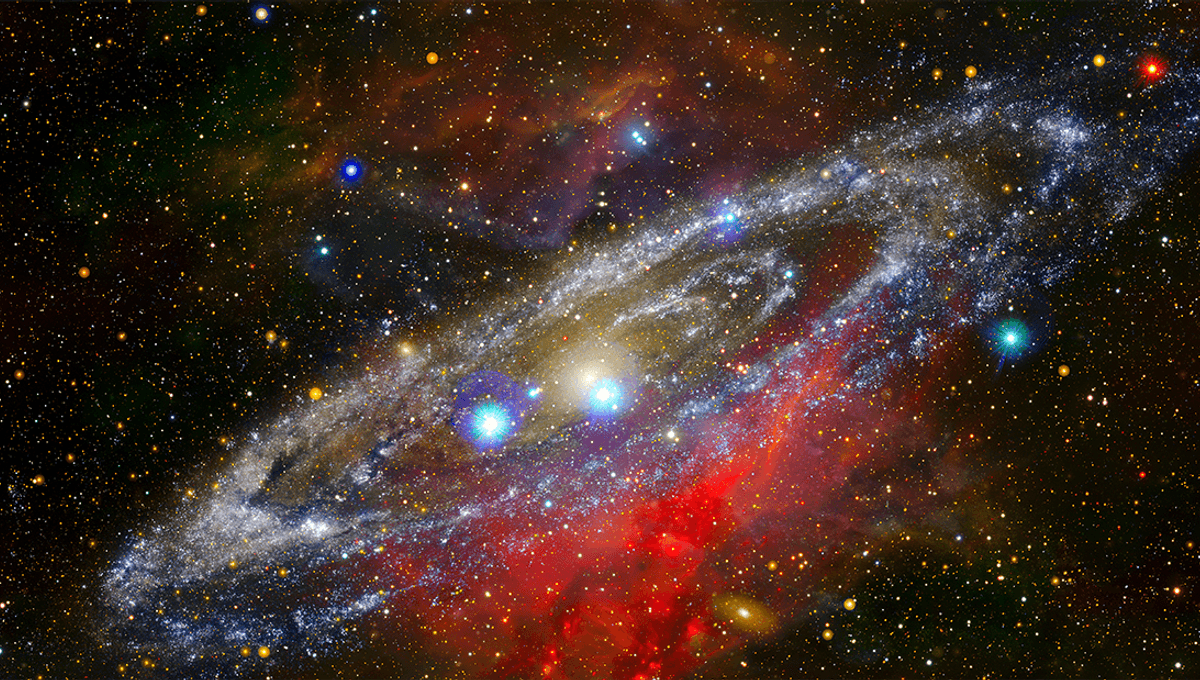
An intriguing new study suggests that the universe may rotate once every 500 billion years. If correct, the authors believe that it could explain one of the most annoying puzzles in astronomic history: the Hubble tension.
The Hubble tension, for the uninitiated, is that measurements of the expansion of the universe differ depending on how you measure it. Looking at the cosmic microwave background (CMB) radiation – the first light of the universe from around 400,000 years after the Big Bang – puts the rate of expansion at 67.4 kilometers per second per megaparsec, with 1 megaparsec being 3.26 million light-years. Meanwhile, measurements of how fast objects move away from each other in the local universe – focusing on “standard candles” like type 1a supernovae and Cepheid variables – puts the expansion rate at 73 kilometers per second (45.4 miles per second) per megaparsec.
The problem, despite many efforts, has not gone away. In a new effort, physicists working on a non-relativistic dark fluid model say that if the universe is rotating then these discrepancies between the two measurements can be resolved.
“To paraphrase the Greek philosopher Heraclitus of Ephesus, who famously said ‘panta rhei’ (everything moves), we thought that perhaps panta kykloutai – everything turns,” István Szapudi of the University of Hawaiʻi at Mānoa Institute for Astronomy, said in a statement.
“Much to our surprise, we found that our model with rotation resolves the paradox without contradicting current astronomical measurements. Even better, it is compatible with other models that assume rotation. Therefore, perhaps, everything really does turn. Or, panta kykloutai!”
According to the team, if the universe rotates at a rate of once every 500 billion years it would be difficult to detect, but would be enough to affect how space has expanded over the course of the universe.
Current models do not assume that the universe is rotating. In fact, as noted by the team, if the universe were to rotate it could bring into existence “closed time-like curves” where spacetime is so warped that an object or observer traversing it would be returned to their starting point in time. However, the team is not worried about that.
“Curiously, [the predicted rotation] is close to the maximal rotation, avoiding closed time-like loops with a tangential velocity less than the speed of light at the horizon,” the team explains in their paper.
The idea isn’t out of the realms of possibility. There have been hints of this, such as observations that galaxies in the early universe appear to rotate in a preferred direction, but it would require a lot more evidence than this to show that the universe is in fact rotating. And, though the “dark fluid” model incorporating negative mass got some scientists excited back in 2018, it remains a fringe idea that needs a lot of work.
The new model put forward by this team, for example, takes place in a Newtonian model of the universe, rather than a relativistic one. Nevertheless, it is an intriguing possibility that the universe could have a rotation to it.
“We found that an angular speed near the maximal rotation […] today predicts a Hubble constant consistent with local measurements when starting from an expansion rate consistent with the CMB,” the team concludes in their study.
“These tantalizing initial results have the caveat that we only focused on the Hubble constant. Further investigations contrasting the rotating model against the entire intertwined network of the concordance model observations, confirmation and development of numerical models using rotating cosmological N-body simulations, and extension for a general relativistic treatment are left for future work.”
Future work, when it comes, could look into whether a rotating universe would explain any other mysteries of the cosmos.
The study is published in Monthly Notices of the Royal Astronomical Society.
Source Link: The Universe May Be Rotating Once Every 500 Billion Years, And It Could Explain The Hubble Tension